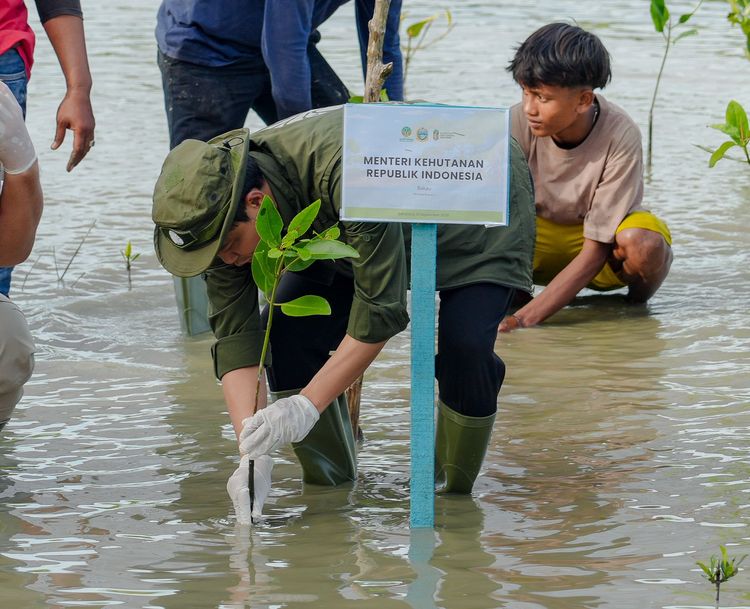Enviro News Asia, Banyuwangi – Indonesia, as the owner of the world’s largest mangrove ecosystem, is committed to leading global mangrove rehabilitation efforts.
This commitment was reaffirmed by Deputy Minister of Forestry Sulaiman Umar during the Kick-Off of the Mangrove Festival 2025 (Mangrofest) at Alas Purwo National Park, Banyuwangi, on Wednesday (30/7/2025).
“Mangroves are not merely trees along the coast; they are the backbone of coastal ecosystems, vital blue carbon sinks, protectors against abrasion, and a source of livelihood for communities,” stated Sulaiman.
The event was attended by representatives from various ministries, local governments, development partners, regional mangrove working groups, electric motorcycle communities, and coastal communities from across Indonesia.
Deputy Minister of Forestry Sulaiman Umar highlighted that Indonesia boasts over 3.4 million hectares of mangroves, accounting for approximately 23 percent of the world’s total mangrove area. Of this expanse, around 2.7 million hectares are situated within state forest areas.
The government, through the Mangrove for Coastal Resilience (M4CR) project supported by the World Bank, aims to rehabilitate 41 thousand hectares of mangroves, equivalent to planting over 80 million saplings.
“This is the largest mangrove rehabilitation project globally. Protecting mangrove ecosystems today is an enduring investment for the nation’s resilience tomorrow,” remarked Sulaiman.
He also underscored the importance of transforming the rehabilitation approach from mere planting to comprehensive ecosystem restoration based on technology and community participation.
The economic utilization of mangroves, such as ecotourism, sustainable fisheries, and blue carbon trading, is also deemed crucial to provide added value for coastal communities.
Concurrently, the Director-General of Watershed Management and Forest Rehabilitation at the Ministry of Forestry, Dyah Murtiningsih, elaborated that Mangrofest 2025 is part of the World Mangrove Day commemoration, designed as a national cross-sectoral consolidation event.
The series of Mangrofest activities includes collaborative mangrove planting initiatives, a “Mangrove Harmony Ride” with electric motorcycles symbolizing the clean energy transition, an exhibition of mangrove rehabilitation outcomes, discussions with mangrove champions, and a nature music concert.
“This festival is not just a ceremony but a movement to raise public awareness and build a shared commitment towards the restoration of Indonesia’s coasts,” concluded Dyah. (*)














